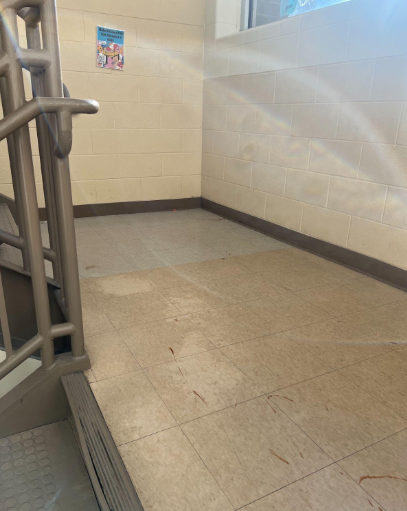Students are tired of early start times
- The Range Staff

- Apr 22, 2024
- 4 min read
by Benny M.

Our official school start time, when the first bell rings, is 7:35. When that bell rings, students are expected to be on their way to class, unless it’s their off hour or a Wednesday’s academic support. With school going until 3:10, and many after school activities lasting a few hours after that, students usually get home at varying times in the afternoon. Students who have homework have to complete it, people who have plans have to do them, and ultimately it’s fair to assume that lots of high schoolers go to bed pretty late. Only to wake up early in the morning and go to another day of school.
In the article “Schools Start Too Early,” the CDC recommends that “teenagers aged 13 to 18 years should regularly sleep 8 to 10 hours per day for good health.” Out of the 16 answers from students surveyed (the rest of the 32 didn’t receive this question), only 5 said that they tend to get 8 hours per day consistently. The most frequent number of hours was between 5 and 6 hours of sleep, but there were a few below that. None of the students surveyed got more than 8 hours of sleep per day. This is the low end of the CDC’s recommendation, and has something to do with the time that they go to sleep and wake up.
Most of the students surveyed go to sleep fairly late, and wake up early in the morning. One anonymous student, who said they got around 6 hours of sleep a day, said they fall asleep somewhere between 11 and 12 PM only to get up at roughly 6:30 AM for school. Another student, who gets about 6 hours as well, falls asleep around 1AM and has to wake up at 6 or 6:45. While these are extremes, there is one thing which all the responses had in common. Almost every student went to sleep sometime after 9 or 10, and had to wake up between 5 and 6 to go to school. This plays back into the issue at hand. Schools start too early. Our first class begins at 7:40, though students are expected to be in school by 7:30 or 7:35. In the aforementioned article, the CDC recommends an 8:30 or later start time for high schools. According to them, there are 42 states in which the majority of schools start earlier than this time, which forms a question. Why?
There are many reasons which are used to justify early start times, but one major one is scheduling. Since the majority of high school students cannot yet drive, adults or older students tend to drive them to school. Since a lot of them also have to drive to work, and the mornings are usually rush hour, or full of traffic. This means that school “has” to start at a different time in order to lower traffic and get students and adults both where they need to be on time.
The issue with this logic is that it negatively impacts student capabilities in order to benefit the active workforce. By pushing the school start times in order to let adult workers get to work, the mental capacity and health of students is impacted, harming the next generation of workers. School is about preparing students for life, and this sets them up for failure. This cuts off a nose to spite the face, and makes no sense. Why harm the next generation of workers to benefit the current one?
There are solutions to this problem of early start times. One is to move start times later, and accept the traffic rush later in the day. If necessary, petition to move work start times later as well. Maybe the solution is to implement a 4 day school week, except that has some more negative consequences than just starting later. If there’s an issue with conflicting schedules, move other schedules forward or just keep them the same and accept it. In fact, an APA article on high school start times notes that “When school systems have moved to later start times, they have found that their students get more sleep.” In the same article, a few benefits of more sleep in students are described. “Sleep leads to increases in/benefits to:
● Memory & learning
● Attention
● Emotional regulation
● Mental health & well-being
● Weight control/Body Mass Index (BMI) “
An article from Wiley Online Library adds some more benefits: “Later start times also generally correspond to improved attendance, less tardiness, less falling asleep in class, better grades, and fewer motor vehicle crashes.”
Out of those previously mentioned students surveyed 59.375% of the 32 students said that school started too early. Only 40.625% of 32 students said the current start time is good. Not one student said that schools should start later. If not for the benefits, if not for the scheduling inconveniences, if not for the student’s thoughts or the logic, then school should start later for the next generation, and to help students reach their full potential.


